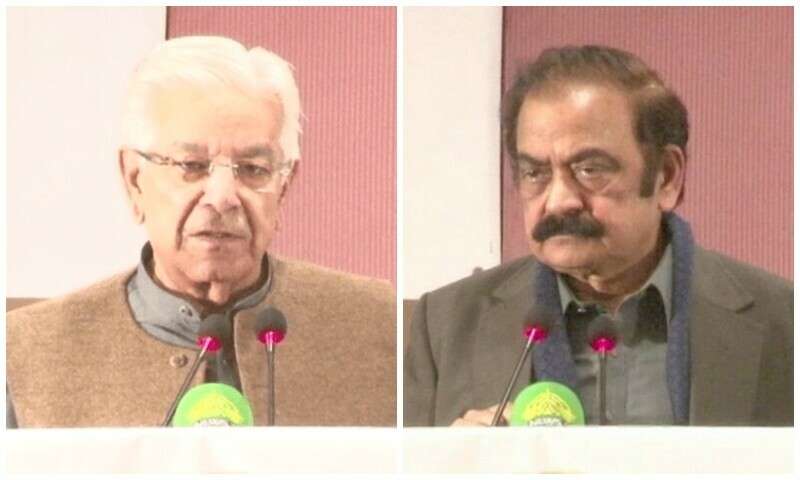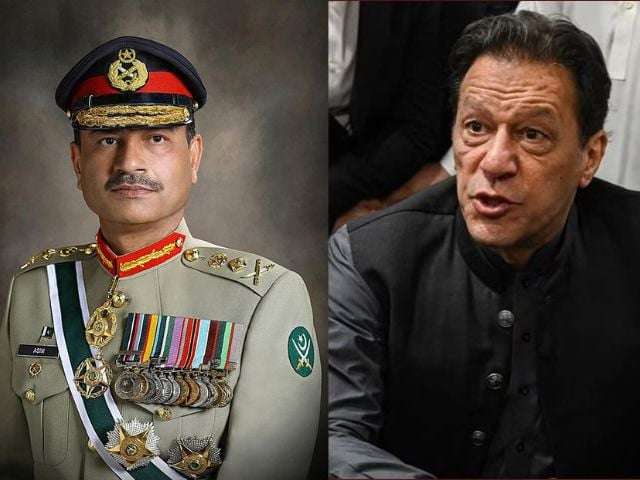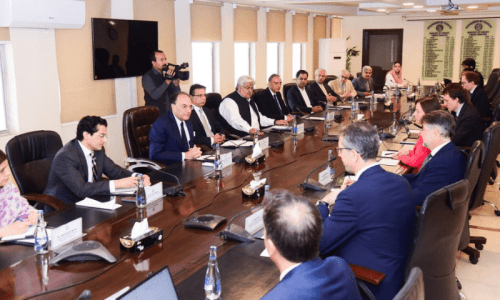Pakistan, a nation that has grappled with political instability for decades, is once again at a crossroads. Senior PML-N leader Rana Sanaullah recently proposed that the long-standing political crisis in the country could be resolved if the leaders of the three major political parties—Imran Khan of PTI, Nawaz Sharif of PML-N, and Asif Ali Zardari of PPP—sat down together for negotiations. According to Sanaullah, if these influential figures join forces, they could put an end to the political deadlock in just 70 days, a period equal to the number of years Pakistan has struggled with political turmoil.
This article explores the political situation in Pakistan, the importance of dialogue between key political figures, and the potential for resolving the crisis that has affected the country for decades. We will also examine the current situation surrounding the PTI leadership, including Imran Khan’s legal troubles, and the implications of negotiations for Pakistan’s political future.
The Need for Dialogue Among Political Leaders
Why Pakistan’s Political Crisis Persists
For the last 70 years, Pakistan has faced a series of political crises. From military coups to political infighting, the country has never achieved a sustainable political equilibrium. The major political parties—Pakistan Peoples Party (PPP), Pakistan Muslim League-Nawaz (PML-N), and Pakistan Tehreek-e-Insaf (PTI)—have all alternated in power, yet none have succeeded in bringing about long-term stability.
The situation has reached a point where the tensions between these parties have reached new heights. The political environment has been further strained due to the ongoing legal issues surrounding Imran Khan, PTI’s founder, and the rise of political violence during protests, often fueled by repression. The rift between the PTI and the government, led by PML-N, has only worsened over time, creating an atmosphere of distrust and bitterness.
Rana Sanaullah’s Proposal: A Call for Negotiations
Rana Sanaullah, in a public statement, suggested that the solution to Pakistan’s ongoing political issues lies in the leaders of the three major parties coming together to negotiate. He emphasized that the involvement of Nawaz Sharif, Imran Khan, and Asif Ali Zardari in the talks could bring about a significant breakthrough.
He stated, “If Nawaz Sharif, Imran Khan, and Asif Ali Zardari sit together, they can end the 70-year-old political crisis within 70 days. The vision of Nawaz Sharif, particularly his return to Pakistan last year, could be the key to resolving these long-standing issues.”
The suggestion to bring the three powerful figures into the negotiation process stems from their significant political influence and the potential to influence change through dialogue.
Imran Khan’s Shift in Political Strategy
Since his incarceration last year, Imran Khan’s relations with the government and the establishment have deteriorated sharply. The PTI, under his leadership, has repeatedly demanded the restoration of its perceived stolen mandate and has been vocal about its distrust in the current political system. In response to the escalating tension, Imran Khan established a five-member committee tasked with holding talks with anyone willing to negotiate, signaling a shift in his stance.
The Government’s Response
Prime Minister Shehbaz Sharif, representing the PML-N, responded by forming a committee within the ruling coalition to engage in dialogue with PTI. This effort culminated in the first meeting between the government and PTI committees, marking the beginning of long-awaited negotiations to de-escalate political tensions.
The hope is that these negotiations, if successful, can pave the way for the restoration of normalcy and end the cycle of political instability.
The Charter of Democracy and Past Mistakes
Rana Sanaullah also highlighted the importance of past political agreements, particularly the Charter of Democracy, signed by Nawaz Sharif and Benazir Bhutto in 2006. The charter was a significant step toward bridging the divide between Pakistan’s major political parties. By acknowledging past mistakes and focusing on moving forward, both leaders set an example for current political figures.
Sanaullah called for a similar acknowledgment of past mistakes by all parties involved in the current political impasse, stating that the current political crisis cannot be solved unless there is mutual recognition of wrongdoings and a commitment to a collective vision for the future.
A Call for the Acknowledgment of Mistakes
He stated, “We, the politicians, must sit together and accept the mistakes we made before moving forward. A new era of political cooperation will begin only when we do so.”
This gesture, according to Sanaullah, would lay the foundation for genuine and constructive dialogue.
The Role of Political Institutions and Power Centers
Sanaullah’s remarks also underscored the need to involve Pakistan’s power centers in the discussions. He mentioned that the negotiation process should not only be between political leaders but should also involve institutions such as the military, judiciary, media, and business sectors.
“There are power centers in this country: the army, the bureaucracy, the politicians, the judiciary, media, and big business. All these entities need to be part of the negotiations,” Sanaullah stated, emphasizing that a holistic approach is needed to address Pakistan’s political crisis effectively.
The idea is that any solution must be inclusive, addressing the interests and concerns of all sectors that hold influence in Pakistan’s power dynamics.
Political Reforms and the Path Forward
Rana Sanaullah’s comments align with the larger call for political reforms in Pakistan. While political parties engage in dialogue, it is essential to discuss constitutional amendments and reforms to ensure the future stability of Pakistan’s political system. These reforms could address governance issues, electoral transparency, and accountability within institutions of power.
“The solution to Pakistan’s political crisis lies in political reform and addressing the legitimate grievances of the people,” Sanaullah concluded, stressing that negotiations should not be seen as a way to grant political leverage to any individual party, but as a means to build a sustainable, democratic system for the future.
Defence Minister’s Criticism of PTI’s Shift in Tone
At the same event, Defence Minister Khawaja Asif raised questions about PTI’s sudden willingness to engage in negotiations after previously rejecting talks with the PML-N for nearly two years. He questioned why PTI had changed its stance and called for more transparency regarding the motivations behind this shift.
“Why now? What has changed in the past 15 to 20 days that PTI is now willing to talk?” Asif asked, expressing skepticism about PTI’s sudden openness to dialogue.
He urged the government to proceed cautiously with the negotiations and be wary of potential manipulation by Imran Khan.
“Imran Khan has used people for his own political gain, and I advise the government to be cautious. He has a history of shifting alliances,” Asif added, suggesting that any agreement should not come at the cost of compromising Pakistan’s political integrity.
Shibli Faraz Defends Imran Khan’s Intentions
On the other side, PTI Senator Shibli Faraz defended his leader, Imran Khan, clarifying that the negotiations were not about seeking personal political advantage. Faraz emphasized that Imran Khan was not negotiating to secure political space for himself, but was instead focused on resolving the country’s larger political issues.
“Imran Khan is not negotiating for personal gain. He has been jailed for the sake of the people and is fighting for justice,” Faraz asserted, reiterating that the demands for negotiations were focused on releasing imprisoned PTI workers and ensuring a fair political process.
FAQs
1. Why is the political crisis in Pakistan so persistent?
The political crisis in Pakistan has been ongoing for 70 years due to frequent military interventions, political corruption, and a lack of cooperation among major political parties. These factors have prevented the establishment of a stable political system.
2. What is the Charter of Democracy, and how does it relate to current negotiations?
The Charter of Democracy was an agreement signed between Nawaz Sharif and Benazir Bhutto in 2006, aiming to bridge the divide between political parties and promote democratic governance. It serves as a reference point for current negotiations, with a focus on accepting past mistakes and moving forward.
3. Why are some political leaders skeptical about the PTI’s shift in stance?
Leaders like Khawaja Asif question PTI’s sudden willingness to engage in negotiations after years of rejecting talks, fearing that the move may be motivated by political maneuvering rather than a genuine desire for resolution.
4. What role do Pakistan’s power centers play in resolving the political crisis?
Power centers, including the military, bureaucracy, judiciary, and media, hold significant influence in Pakistan’s politics. Involving these institutions in negotiations is seen as essential for finding a comprehensive solution to the crisis.
5. What are the main demands in the ongoing negotiations?
The PTI’s main demand is the release of jailed workers, while the government seeks a broader agreement to resolve the political impasse and ensure fair electoral processes in the future.
Conclusion
The political crisis in Pakistan is deep-rooted and multifaceted, but through honest negotiations and cooperation between the country’s key political figures, it is possible to chart a path toward lasting peace and stability. The coming months will be crucial as talks continue, and both the government and PTI work to bridge their differences for the future of the country.
SEE ALSO
https://flarenews.pk/2024/12/28/microsoft-warns-users-against-installing-windows-11-24h2/



